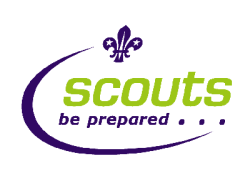
All News
PLAY and DEFENCE for Improving Players

“Be Prepared”
That’s the motto for boy scouts and for bridge players, especially defenders. You know those precious few moments when you as a defender see dummy…and the declarer does their thinking about how to play the board. You, too, should be doing a bit of preparation too. You need to be ready to know what you will do if or sometimes when a certain card is played. Sometimes, you know it is going to happen. So, ask yourself the question. “Which card will I play at the key moment?” The answer is not always easy:
| South Deals N-S Vul |
|
||||||||||||||||||||||
|
|
|
|
|||||||||||||||||||||
| West | North | East | South |
| Dummy | You | ||
| 1 ♣ | |||
| 1 ♥ | 2 ♦ | Pass | 3 NT |
| All pass |
Your partner leads the H![]() 4 against what might be a rather ambitious 3NT contract. Dummy is simply one suited, not really strong enough for their 2
4 against what might be a rather ambitious 3NT contract. Dummy is simply one suited, not really strong enough for their 2![]() bid but obviously the player felt they were too good to pass the 1
bid but obviously the player felt they were too good to pass the 1![]() overcall. South must, though, be a reasonably strong, probably balanced hand.
overcall. South must, though, be a reasonably strong, probably balanced hand.
So, what are you thinking about as everyone looks at dummy? It will hardly be which card you are going to play to trick 1! Your problem is going to be “What are you going to play when South plays a diamond towards the queen?” So, start thinking. You have about 5 seconds and almost certainly, you will have to make your choice at trick 2.
It is a standard play that, when your partner leads from their long suit, to win the lead as soon as you can and return their suit. On this deal, you have no interest in any other suit. So, is that what you should do here?
There are 2 unknown issues here to consider. The first is the number of hearts your partner has, presumably five or six. If it is 6 headed by the AQ, then you should certainly win the first diamond and have your remaining heart on the table very quickly. If partner only has a 5 card suit, the chances are they cannot run the suit. With a good 5 card suit, say AQJ95, partner may well have led the queen and not a low heart.
That brings us to problem 2. How many diamonds does declarer have and how many tricks does declarer need from the diamond suit?
Come on, now. 5 seconds are up. Declarer called for the 6 from dummy. Your 7 handled that card but lost to the 8. Out came the ![]() 2 from declarer’s hand with partner contributing the
2 from declarer’s hand with partner contributing the ![]() 4 and the queen played from dummy. You are ready, aren’t you?
4 and the queen played from dummy. You are ready, aren’t you?
| South Deals N-S Vul |
|
||||||||||||||||||||||||||||||
|
|
|
|||||||||||||||||||||||||||||
|
|||||||||||||||||||||||||||||||
| West | North | East | South |
| Dummy | You | ||
| 1 ♣ | |||
| 1 ♥ | 2 ♦ | Pass | 3 NT |
| All pass |
Let’s see what would have happened had you hesitated and then played low. Declarer would surmise you held the king (absolutely no other reason to hesitate) and would have a quick rethink.
Being unable to run the diamonds, they would start counting. 2 tricks in each red suit, two in spades. Therefore, they would need three from the club suit. So, South would take a successful club finesse and force a second heart trick by twice leading high hearts, making 9 tricks. That would be the price you paid for your hesitation, being unprepared.
Contrast that with the nice smooth low diamond you played at trick 2. Not a care in the world. Of course, South could still make their contract by taking the club finesse but they might just rely on a second diamond finesse…and then the roof will fall in on the contract.
There is no clear-cut correct answer as to what you should do on the first diamond. As you can see above, winning the first diamond finesse and firing back a heart will give South an easy route to 10 tricks. Cutting declarer off from those diamonds does seem appealing.
The other annoying consideration is if your partner had a singleton diamond and 6 hearts. Now, ducking the first diamond would be disastrous as, once more, South will be able to take the club finesse for 9 tricks. I hope you partner would then be sympathetic to your failure to win the first diamond.
We have not even given you the situation where you might hold ![]() K and just one more diamond. How would you fancy the smooth duck now? No blushing when you do so, either!
K and just one more diamond. How would you fancy the smooth duck now? No blushing when you do so, either!
Hopefully, though, you have seen the worth of being prepared. Of course, the subsequent tricks may make you change your decision. You may not always make the right decision (if you do, we will send you the dates for next year’s New Zealand national trials!) but you will be prepared if and when that big decision time happens.


Be Prepared
Richard Solomon
Go Back View All News Items
